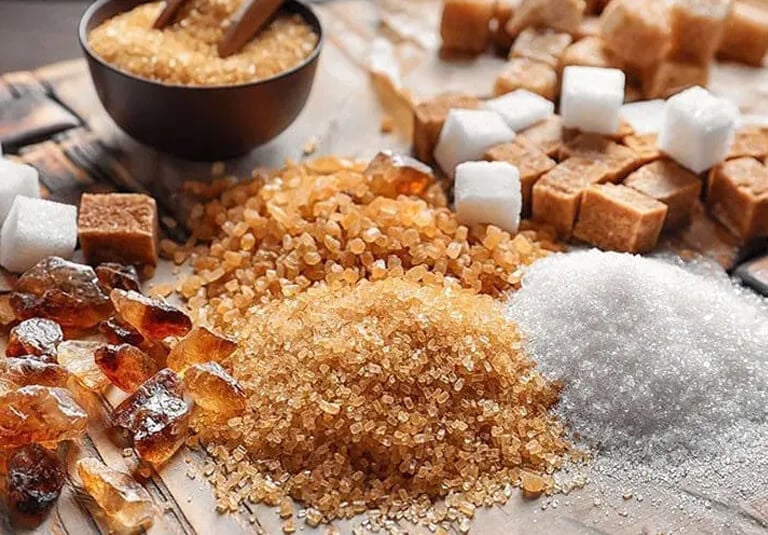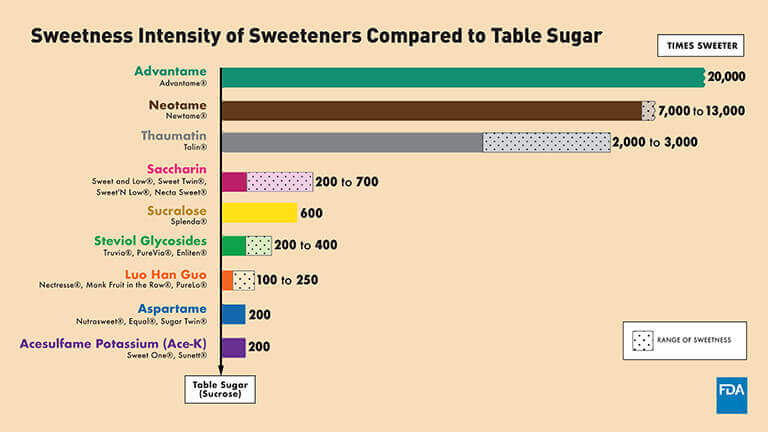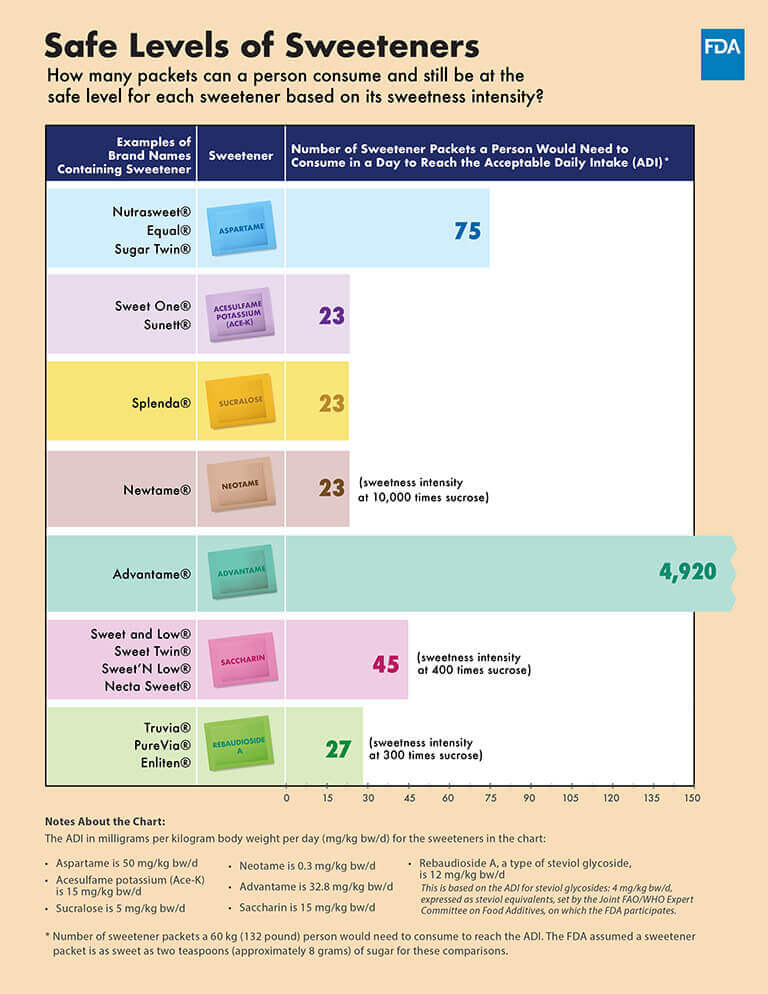Best Keto Sweeteners

12 Best Keto-Approved Sweeteners
Keto Sweeteners Table of Contents
Introduction to Keto Sweeteners for Keto Compliance
Sugary foods and sweeteners should be excluded when on the keto diet, since they are high in carbs. A few of them can be utilized as ketogenic sweeteners that add the sugary taste you crave without having a significant impact or your carb intake. If you’re on a ketogenic diet you are probably thinking sweets are off limits. And for the most part, you’d be right! The whole point of the keto diet is to slash carb intake and keep sugars low in order to lose weight. No more candy or donuts.
You can have sweeteners when on a keto diet, when you need to satisfy that sweet tooth itch. So, if you absolutely must, make sure it is free or low in carbohydrates and does not have sugar additives that will create blood sugar spikes or lead to swings and crashes . If you choose sugar that compromises your blood sugar levels—elevating them and throwing your metabolism off—then you will fall out of ketosis. Your body will stop producing ketones and you start storing fat, rather than using it for energy. See below to find out keto sweeteners:
Keto Sweeteners 101
What kind of low-carb keto sweeteners can I use to maintain keto? You can have a variety of non-nutritive keto sweeteners. Non-nutritive sweeteners, or sugar substitutes, contain few or no calories and sugar. They won’t raise your blood sugar or impact ketosis.

Intensity of Keto Sweeteners vs. Regular Sugar
What sugar substitutes should I avoid or limit?
Avoid nutritive sweeteners, which are basically the ones that contain sugar and calories. That defeats the purpose of being on a weight-loss benefiting diet like keto, since it’s unnecessary calories and sugars to affect blood sugar levels. Classic examples of sugar substitutes to avoid or limit on keto are:
- Table sugar
- Coconut sugar
- Corn syrup
- Agave nectar
- Honey
These are concentrated sources of carbohydrates (sugar) and will raise blood glucose levels significantly, keeping you out of ketosis.
You can and should always check product labels to look for these names.
How do keto sweeteners affect weight loss and weight gain?
There is no evidence that sweeteners impact weight loss in any way on keto or any other diet for that matter. There are theories, however, suggesting that sweeteners can make us overeat by overstimulating taste receptors; that they disrupt the gut microflora, and that they affect blood glucose in some way, but these are yet to be proven.
A systematic review and meta-analysis published recently in BMJ found no strong link between sugar substitutes and problems with losing weight. With that said, we need to wait for more research to make a final conclusion.
Still, you can assume that enjoying the safe and natural keto sweeteners in moderation on keto is totally okay. You’ve got to indulge at times—for dessert, birthdays, etc.—and so doing so in a practical and smart manner is your best bet.
How do sweeteners affect insulin on keto?
Based on previous studies, researchers from Queen’s University, Kingston in Canada suggested that non-nutritive sweeteners stimulate taste receptors and cells in the gastrointestinal tract, which promotes the release of insulin and other hormones. This can maybe affect blood sugar levels, swings, and cravings when on keto.
What’s more, “this theory was explained in a study published last year in Nutrients.

Safe Levels of Sweeteners
FAQ: Keto-Friendly Sweeteners
Here are a few more of frequently asked questions on sweeteners and sugar replacements.
What can be used as a replacement for sugar?
You can use any of the above keto sweeteners on this list as a replacement for sugar. Yet, we recommend going by our guideline and dietitian recommendations for the best and worst ones to pick in order to reap the most benefits on keto.
Can you have sweeteners on keto?
Yes, you can! The options are in this article, as well as our top recommendations for the safest and most keto-friendly options. As always though, enjoy keto sweeteners in moderation for when you need a sweet snack or dessert to settle your craving.
Which keto-approved sweetener tastes the best?
“I think most people would say erythritol because it is so widely used, is fairly cheap and because it’s not a overly sweet sweetener, ie. it is not 200x sweeter than sugar, so it is easier to dial in,” says Evans.
Can you have diet soda on keto?
You can have diet soda on keto, as there are no carbs or calories. Yet, more research is needed to truly determine the effects of diet soda on blood glucose levels and on craving tendencies. Still though it will likely not kick you out of ketosis.
Is stevia keto?
Yes, stevia is keto approved. Feel free to use it in baked goods, coffee and tea, and other sweets you make at home. It has a glycemic index of zero and will not disrupt ketosis.
Is truvia keto friendly?
Truvia is keto-friendly, like erythritol. “In fact if you look at what it is made of it is mostly erythritol with some stevia added. The reason I use the liquid stevia is to get just liquid stevia. The reason people like Truvia is that you get the combination of the super sweet stevia along with the flatter erythritol which makes it easier to mix into foods and recipes as it is not so super sweet,” says Evans.
Is honey keto friendly?
Honey can be keto friendly but it would have to be eaten in really small amounts. “It also depends on which version of keto you’re following; just low carb or the super keto 4:1 ratio diet. On the 4:1 keto you could not have honey but if you are just trying to cut back on sugar we often say, small amounts of real/natural honey is ok,” says Evans.
Do sugar alcohols count on keto?
Yes, sugar alcohols do count on keto and this can vary based on absorption. “I also think individual absorption can vary as well likely based on the microflora and individual digestion and absorption. Most sugar alcohols will list estimated carb based on expected absorption,” sayas Evans.
Xylitol is estimated around 50%. “I think this variable digestion/absorption is responsible for the variable or predicted GI symptoms. Some people get diarrhea from any sugar alcohol others can use massive amounts of erythritol without any issues,” he says.
Can you eat fruit on keto?
Fruit can be a part of a lower carb diet but if someone is moving toward the higher ratios, 2:1, 3:1 and 4:1 fruit will almost disappear. Berries are commonly used even in small amounts to keep fruit in the diet due to the fiber content, which helps offset the carb numbers.
Will vodka kick me out of ketosis?
Vodka has zero carbs, so vodka in theory is okay on keto. “If someone has a chronic disease diagnosis, I would say no we do not need the stress on the liver/body but If you are a healthy person on keto who likes a drink now and then technically it is ok. I think what vodka is often mixed with might be the issue for keto people,” says Evans. If you have hard liquor, keep it simple or with water or soda water, not sugary mixes.
Is aspartame bad for keto?
You can have aspartame on keto but it isn’t good for you, so steer clear. “It seems aspartame/phenylalanine is absorbed quickly, into the blood stream and because of this and the amount some people consume becomes an excitotoxin. This neuroimbalance can impact hormones including serotonin in some people even with just one diet soda,” says Evans.
Is stevia and monk fruit a keto friendly sweetener?
Yes, both are keto-friendly and common. You can use both when making baked goods or cooking at home and you can enjoy products containing them. They have a glycemic index of zero and will not disrupt ketosis.
Is stevia and swerve the same thing?
No. They are the same in that they both will not disrupt ketosis but they are made from different things. Swerve is a blended sweetener and sugar substitute for low carb cooking. Yet it is made from a blend of erythritol and oligosaccharides instead of stevia. Swerve has no aftertaste and does not affect blood glucose levels, either.
Keto Sweeteners Cheat Sheet
Use These Keto Sweeteners:
Erythritol: a sugar alcohol that passes right through the body. It’s also natural, affordable, versatile, and has about 70% the sweetness of sugar.
Monk Fruit: it has about 100-250x the sweetness of sugar and can be used in all the same ways, however it is often mixed with molasses or sugar which can alter the carbs and calorie content so keep an eye for that.
Stevia: it has about 30-150x sweeter than sugar. Great for those with diabetes or on keto looking for an alternative. Often comes in powder or liquid form. Goes best with desserts, teas, coffees.
Aspartame: a low-calorie artificial sweetener that provides the sweetness of sugar without the carbohydrates. It’s about 200x sweeter than sugar.
Sucralose: a potent artificial sweetener that is about 600x sweeter than sugar, allowing for very small amounts to deliver the desired sweetness.
Acesulfame K: an artificial sweetener with no calories nor carbohydrates; it’s about 200x sweeter than sugar.
Saccharin: about 200-700x sweeter than sugar, and one of the oldest artificial sweeteners on the market today.
Avoid These Keto Sweeteners:
Sugar: also known as sucrose, table sugar is a carbohydrate dense food that is unsuitable for keto.
Maple Syrup: despite being natural and having fantastic micronutrients, maple syrup is about 75% carbohydrate by composition, and is not keto.
Honey: this little treat we get from honey bees, while an amazing food, is also high in carbs and not keto.
High-Fructose Corn Syrup: you probably won’t find HFCS on the store shelf by itself, but you’ll notice it’s in many sweetened foods. Check labels to make sure you’re sticking to keto.
Agave: a fructose derived syrup from the agave plant, high in carbohydrates and not keto compliant.
Xylitol: a sugar alcohol found in many sugar-free gums, and while technically keto compliant, xylitol is currently undergoing research to determine its safety as a food additive. Avoid for now.
The Best Keto Sweeteners
Now, here’s a breakdown (listed in no particular order) of the most common keto-approved sweeteners you will find on store shelves:
1. Monk Fruit (Luo Han Guo)
- Pros: Natural and mild taste, versatile.
- Cons: More expensive than other options. Possible aftertaste.
- Taste: Mild, sweet, and closely resembling sugar without bitterness.
- Best uses: Versatile and useable in beverages, baking, cooking, and more.
2. Erythritol (Sugar Alcohol)
- Pros: An affordable sweetener with good taste and broad utility.
- Cons: Possible digestive discomfort in large doses.
- Taste: It has 70% the sweetness of sugar with a minty or cool aftertaste.
- Best uses: Good for beverages, sauces, and desserts.
3. Stevia (Steviol Glycosides)
- Pros: All natural and contains 0 calories. You need to use only a tiny amount to get the same sweetness level as sugar.
- Cons: May have a liquorice-like or bitter aftertaste. Expensive compared to sugar and many other sweeteners.
- Taste: Sweeter than sugar with a bitter or liquorice hint.
- Best Uses: In low-carb desserts, tea, and coffee. Best when combined with other sweeteners to offset the aftertaste.
4. Sucralose
- Pros: High sweetness and heat-stable.
- Cons: Possible digestive discomfort at high doses. Possible aftertaste. Generally higher cost than others.
- Taste: Intense sweetness, but with a more neutral flavor than other sweeteners.
- Best uses: Great for virtually everything from cooking to beverages and more.
5. Saccharin
- Pros: Time-tested and proven. Intensely sweet.
- Cons: Some report a bitter or metallic aftertaste.
- Taste: Very sweet with a noticeable bitter or metallic aftertaste.
- Best uses: Beverages and as a tabletop sweetener.
6. Allulose
- Pros: It’s a low-calorie and low-sugar sweetener that can be used on keto.
- Cons: It’s relatively new on the sweeteners market, so you might not find it being sold directly to consumers.
- Taste: It has 70% sweetness of table sugar and there’s no bitterness, as well as a cooling sensation.
- Best uses: In salad dressings, sauces, fillings. Usually found in low-sugar convenience food.
7. Bochasweet
- Pros: Tastes identical to cane sugar and has no net carbs.
- Cons: Fairly expensive compared to some other sweeteners.
- Taste: Identical to sugar with no bitter or cooling aftertaste.
- Best uses: Can be used to sweeten desserts and drinks.
8. Isomalt
- Pros: It does not affect blood glucose or insulin levels, and it does not promote tooth decay, like others do. It is also low in calories, providing half of the calories of sugar.
- Cons: It can cause flatulence and diarrhea in some people. In general, it should be eaten in small quantities to avoid side effects.
- Taste: It’s less sweet than sugar, but the type of sweetness is almost identical with no aftertaste.
- Best Uses: Popular for cake decorations. It has the same texture and appearance as sugar, so it can be used just like regular sugar.
9. Maltitol
- Pros: It’s a sugar alcohol so most maltitol passes through the digestive tract undigested and has 0 net carbs. It also behaves just like table sugar in cooking and baking.
- Cons: Doses of up to 40g can cause flatulence and doses of 90g and above diarrhea. So, be careful with how much you use. It has a high glycemic index but since it’s a sugar alcohol it doesn’t have that much of an effect on blood sugar. Still, use in moderation.
- Taste: Almost as sweet as sugar with a subtle cooling effect.
- Best Uses: Use it in small amounts to sweeten coffee, tea, smoothies, and baked goods. Avoid using it for making caramel candy and recipes that need a lot of sweeteners, since you cannot use large quantities.
The Worst Keto Sweeteners
Here are the five keto sugar substitutes, listed in no particular order that are not recommended as keto sweeteners on the keto diet.
1. FiberYum
- Pros: Prebiotic and all-natural.
- Cons: There is a high possibility that it can raise blood glucose levels like glucose syrup, especially if it is enzymatically produced.
- Taste: It’s moderately sweet.
- Uses: In baked goods, syrup for pancakes, protein bars.
2. Yacon Syrup
- Pros: Doubles as a gut-benefiting prebiotic.
- Cons: Very high in sugar and calories—not great. A teaspoon has around 2.8g net carbs.
- Taste: Similar to applesauce but sweeter.
- Uses: Cookies, sweets and desserts.
3. Tagatose
- Pros: It can work as a prebiotic, which will boost gut health and promote healthy digestion. And it’s recognized as safe by the FDA.
- Cons: High in calories relative to grams. It can have a laxative effect for some people at high doses, so be warned if you have a sensitive stomach. Not suitable for people with fructose intolerance. It’s expensive, relative to other sweeteners.
- Taste: 75-90% as sweet as table sugar. It’s neutral in sweetness and has no aftertaste.
- Uses: It’s an all-purpose sweetener suitable for cooking, baking, coffee, tea, and icing.
4. Xylitol
- Pros: Affordable, great for oral health, and similar to sugar.
- Cons: Currently undergoing further testing for implications on cardiac health.
- Taste: Comparable to that of sugar but with a mild cooling effect.
- Uses: Best with baked goods. (Use moderately on keto as a versatile sweetener to avoid causing sugar spikes).
5. Maltodextrin
- Pros: It sweetens and thickens food at the same time, and is relatively cheap compared to other sweeteners.
- Cons: It can cause spikes in blood glucose levels, which isn’t good for the heart and can lead to cravings. Some people develop allergic reactions, too, says Norton. It’s not keto-friendly and should be avoided on low-carb diets as well.
- Taste: It tastes mildly sweet, almost neutral in flavor.
- Uses: In recipes that need a thickener and sweetener like peanut butter and smoothies.
Keto Meals
MealPro offers a diverse keto meal plan that includes entrees containing dairy that is rich in casein protein. Sign up today to have our delicious keto meal boxes shipped to your home or office.